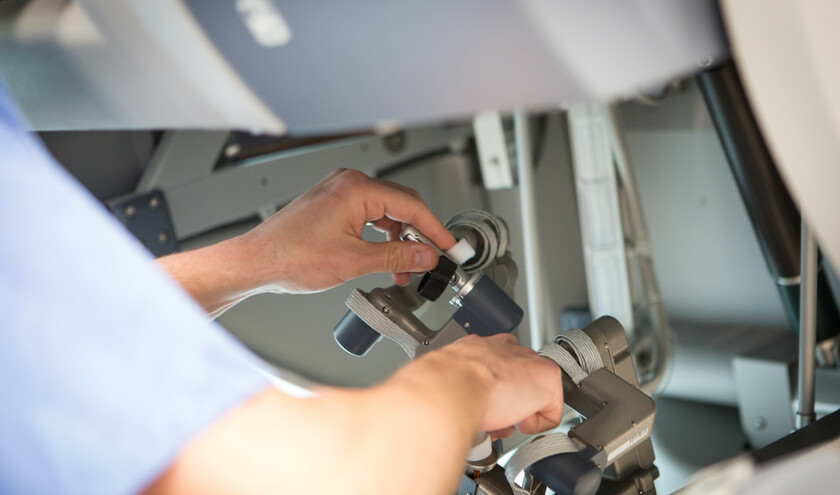Five systems for soft tissue procedures and six for orthopaedic surgery have received conditional approval.
Patient organisations told NICE's independent appraisal committee that faster recovery times, shorter hospital stays and quicker return to work were the biggest benefits of robotic surgery. Patients also reported experiencing less pain and reduced scarring compared with traditional surgery.
The 11 systems can be used while further evidence is collected over the next three years, demonstrating their cost-effectiveness for robot-assisted surgery, as part of our Early Value Assessment process.
Dr Anastasia Chalkidou, programme director of NICE's HealthTech programme, said: ‘These innovative technologies have the potential to transform both soft tissue and orthopaedic surgical care in the NHS.
‘The data gathered over the next three years will allow us to evaluate exactly how these technologies can improve patient care and help ensure NHS resources are directed toward interventions that deliver meaningful clinical benefits and long-term value to our health service.'
Dr Chalkidou added: ‘Robot-assisted surgery may help overcome key limitations of conventional techniques through precise movements and enhanced 3D visualisation, potentially transforming surgical options and outcomes for NHS patients. Both applications could benefit patients who might not otherwise be candidates for minimally invasive approaches.'
The robot systems each cost between £500,000 and £1.5m and are typically only found in specialist centres which perform hundreds of procedures annually.
Professor Sir Stephen Powis, NHS national medical director, said: ‘This is fantastic news for patients and shows that the NHS continues to find new ways to utilise the latest technological innovations to improve care. This will be a vital element of the 10-Year Health Plan which will be published in the coming months.
‘Robot-assisted surgery is crucial to the future of high-quality healthcare – and with benefits including shorter stays in hospital, faster recovery for patients and less invasive procedures these advancements will have a knock-on effect throughout the system and help patients get treated quicker.
‘This is an important step forward as we continue to work to ensure everyone is able to get high-quality care when they need it.'
John McGrath, consultant urological surgeon at North Bristol NHS Trust and chair of the NHSE Steering Committee for Robotic Assisted Surgery, said: ‘This is a further milestone in surgical innovation, and we are currently working hard to develop a national strategy that ensures patients across the country are able to access this treatment when they need it, regardless of location.
He added: ‘Later this month, we will release the first national guidance for the NHS in England that describes how robotic programmes should be configured, implemented and delivered as the services scale up. A key aspect in this is ensuring the necessary increase in expertise in robot-assisted surgery across the NHS workforce, so this technology can have the greatest possible impact for patients.'



